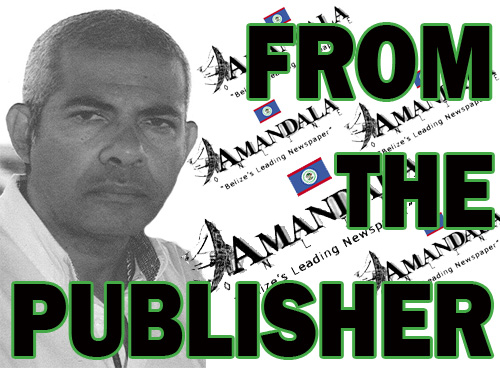One of the problems with colonialism, for the colonial territory, was that one had to do all of one’s trading with the mother country. The colonial tariff structure was such that we in British Honduras had to buy all our goods and machinery from the United Kingdom, and we had to ship most of our mahogany and other hardwoods to Britain at prices the British controlled.
A Belize businessman by the name of Bob Turton began to do a lot of import and export business with American companies, and he saw where the colonial tariff structure was designed for Britain’s benefit and detrimental to Belize. He therefore supported the anti-colonial movement which called for Belizean self-rule, beginning in 1950. In the years following, the leadership of the ruling People’s United Party (PUP) told Belizeans that independence for Belize would bring more development for the country.
Three years after independence in 1981, Belizeans voted for their first change of government in the modern political era, replacing the PUP with the United Democratic Party (UDP) in 1984. Since that change of government thirty years ago, the UDP has spent roughly sixteen years in government, and the PUP fourteen.
Where economic growth rate was concerned, Belize experienced its greatest post-independence growth during the UDP’s first term of office between 1984 and 1989, and during the PUP term of office from 1998 to 2003. The UDP achieved growth by selling passports, increasing land sales to foreigners, and promoting tourism. This growth was not a sustainable one. The PUP achieved their 1998 to 2003 growth by borrowing a lot of money at commercial rates from various foreign financial institutions. This was also not a sustainable growth.
From this newspaper’s standpoint, we see sustainable growth as having to do with an increase in the skills training of the masses of the Belizean people. This has not taken place at any time since Belize’s first change of government thirty years ago, and, in fact, there appears to have been an increase in the percentage of unskilled workers in our economy. Certainly, there has been a dramatic increase in the level of violence among unskilled urban workers.
The PUP standard bearer convention held in Cayo Central on Sunday, April 27, pitted Dan Silva, whom we may perhaps describe as a conscientious capitalist, against Luke Espat, who is known as a rapacious capitalist. Inside the PUP, Mr. Silva is considered controversial because he has, on occasion, taken strong positions against what he has seen as corruption or rapacity. Mr. Luke, for his part, is known as a high roller for whom anything goes once that anything makes money for himself and his companies.
Many who are pro-UDP or hostile to the PUP in any way felt that it would have been a good thing for themselves, and a bad thing for the PUP, if Luke Espat had won. It would have been easier for the UDP to criticize the PUP in media centers where Mr. Luke’s doings have been better publicized than in rural Cayo, where Cayo Central is located.
Luke Espat and Lord Michael Ashcroft had been doing a lot of business together during the two PUP governments from 1998 to 2008. There are some who say that Luke was only a front man for the Lord, while others say that Luke, who is not short of bravado, ended up indebted to the Lord’s banks for as much as $200 million. Whatever the case, Lord Ashcroft’s Belize Bank has recently gotten a $29 million judgment against Espat, but the wily Lucas is still not short of cash, if we are to judge from his campaign expenditures in Cayo Central.
With respect to the PUP’s economic philosophy, it is noteworthy that Mr. Godfrey Smith, a confidant and agent of the Lord’s, was appointed the PUP’s national campaign manager before the Easter holidays, while the former national campaign manager, Mr. Ralph Fonseca, was named to a PUP executive position at the same time. Mr. Ralph was, of course, the architect of the PUP’s “growth economics” of 1998 to 2004.
The PUP have been saying that anyone who says that the UDP and the PUP are the same thing, is working for the UDP. At the same time, it is for sure that the return of Cordel Hyde to the PUP means that the UDP will now treat Kremandala as pro-PUP.
The nature of Belize’s parliamentary democracy is such that it is dominated by the UDP and the PUP. We have argued in these pages that the masses of the Belizean people have lost control of our two major political parties. We have also argued that the splintering of Belize’s third parties, from birth, makes it impossible for them to threaten the PUDP.
The masses of Belizeans who entered self-rule in 1964 and independence in 1981 had suffered generations of slavery and colonialism. These were oppressed and disadvantaged Belizeans. Where Kremandala is positioned, these are the Belizeans with whom we are concerned. We said previously in this column that “we see sustainable growth as having to do with an increase in the skills training of the masses of the Belizean people.” With independence, more development was supposed to come. The development we were interested in involved improvement in the lives of the masses of Belizean people. Elitist and petty bourgeois greed and successes do not impress us.

